Tea is in the oven. While it cooks, I shall read the Intergenerational Commission's report. But because I am endless, I will be completing this table first. 

Right, I can get started. Did a quick map. 



Reading the summary -- the decline in job-to-job moves among younger generations that really stands out to me. This feels like a deep and important change. I look forward to finding out why the authors think it's happened.
Do you know what -- this summary is really well-written. Shorter sentences and less jargon than most similar things manage.
I'm enjoying this "reform council tax" idea -- but since it is the most obviously necessary thing ever, and yet we can't manage to do it politically, I shall await details of how we'll achieve that and what we'll replace it with...
Here it is -- the "moving for a job" graph. I'd not realised the extent of this before. It's massive. 
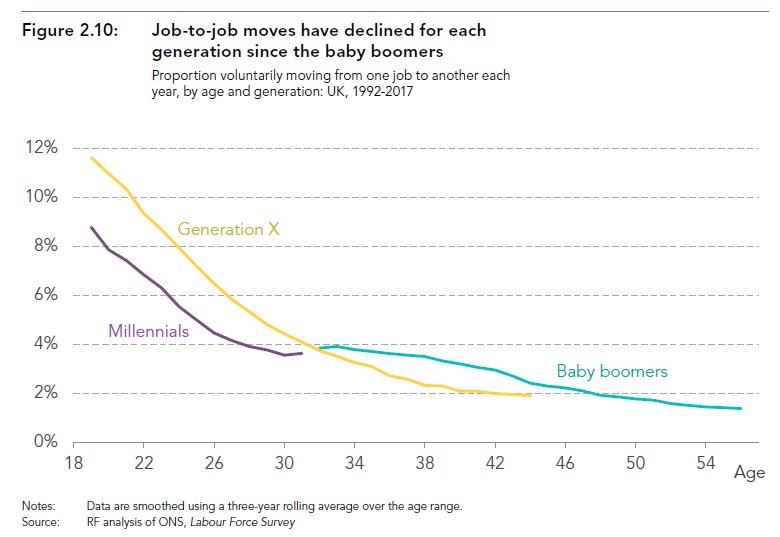
I am well aware that I'm very unusual in the frequency with which I've moved for work. But I hadn't realised just how unusual.
Actually though, I wouldn't be included in these figures. So I wonder if it's just that jobs expire more often nowadays than they once did.
Not just people not moving jobs voluntarily. Also not moving around the country as much voluntarily. 

Page 55 -- we're onto housing. I am getting a drink because I do fear I might need it.
I am a non home-owning millennial.
The presence of this graph has calmed my worst fears about the amount of drink I would require. 
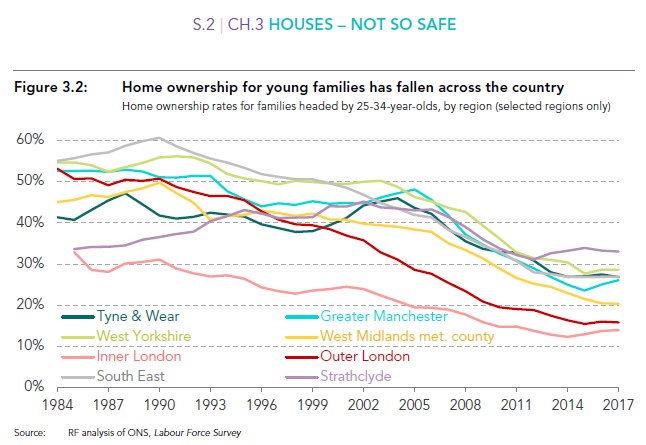
And then this one has further calmed me. My fears were unfounded. 
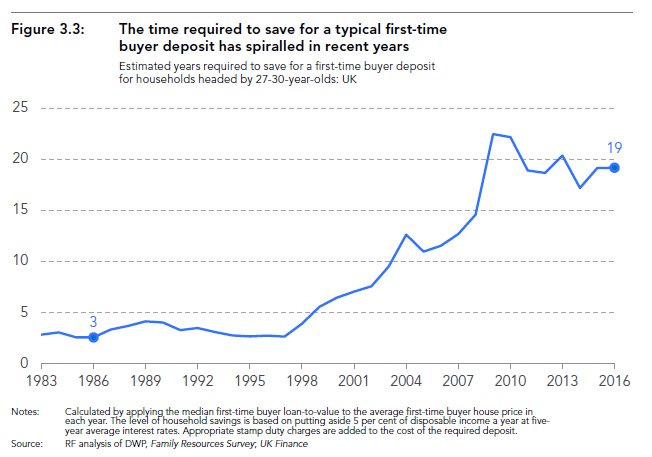
Pausing half way for an #IntergenerationalCommission themed tea. Starting off with one of these natch. 

Can't stop thinking of the map of where the people involved in the report live and work -- and the data in the report that people are so immobile within the UK -- and it's leaving out a lot of talent and ideas and experiences isn't it?
Back on it. This graph is important I think. Something that @centrefortowns have done a great job looking at too. I think they'd say it's big cities vs. the rest not urban vs. rural. 
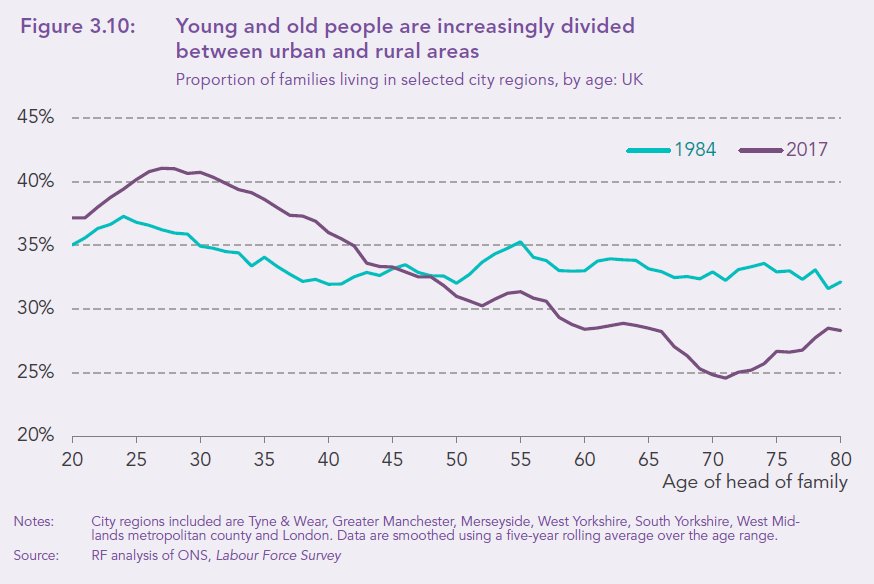
The reference is to @CentreforCities -- but that's just a result of the composition of the commission and their experts.
Next up -- pensions. I think I'm a bit more worried than the report itself here. Because I feel like "we do so on the significant assumption that our economy returns towards a pre-crisis level of performance..." is even more significant than they do. #Degrowth will change this.
A good -- this is addressed in Chapter 5. "third option of raising current taxes on income and consumption to
meet these additional costs would weigh particularly on millennials and generation X, pushing taxes up by 7 per cent of GDP by the 2060s." > *gulp*
meet these additional costs would weigh particularly on millennials and generation X, pushing taxes up by 7 per cent of GDP by the 2060s." > *gulp*
On which ages have recent cuts fallen? This is a good graph. 
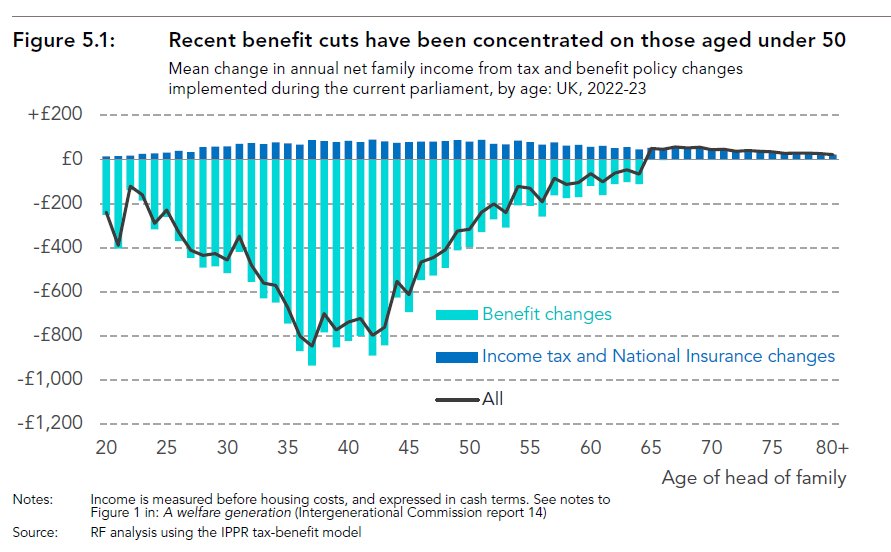
"In considering the country we pass on to future generations, it is not just debt that matters but the wider ‘social inheritance’ we leave" > I've not seen this time series before. Very interesting. 
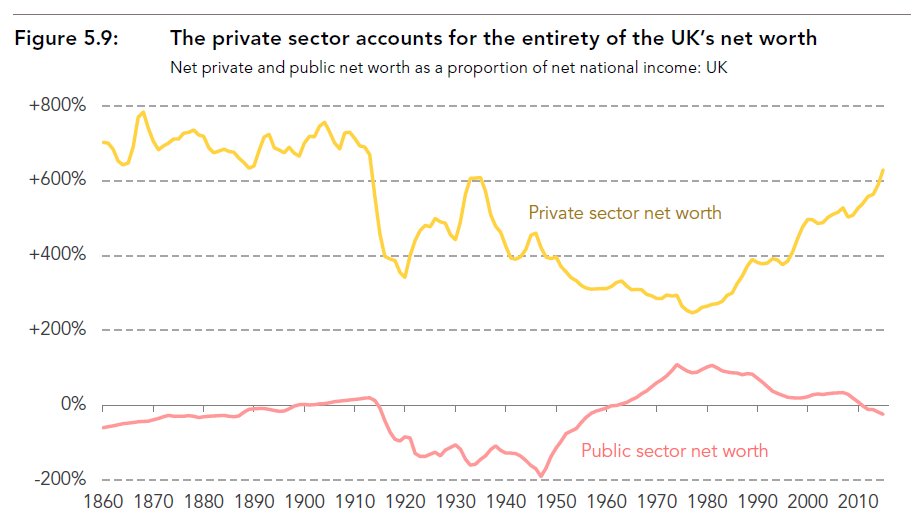
Hahaha -- wow they do actually mention eating avocados. In the "Millenial Myth-busting" section. "the growth in eating out during the 21st century has been predominantly driven by better-off older working-age adults (aged 55-64)".
I hadn't realised this either -- each cohort is receiving less in-work training than predecessors at the same age. This might be partly a delay in entering the workforce (more uni) -- but not all of it I don't think. 
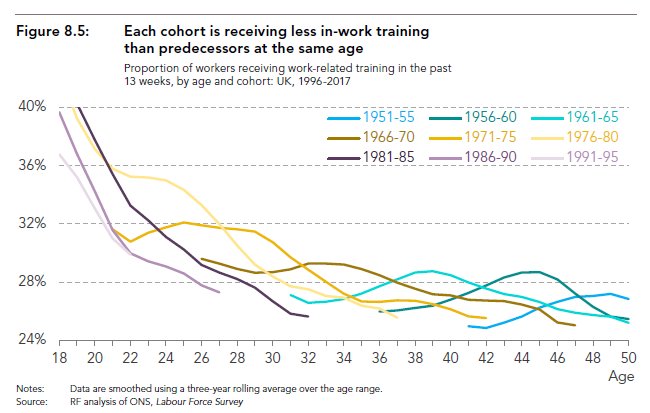
"lower-skilled people are less likely to receive training than
higher-skilled workers, even if they are in a firm that does train" is a bit of a shocker.
higher-skilled workers, even if they are in a firm that does train" is a bit of a shocker.
Onto the housing bit and there's finally something for local government to do. Let City Mayors block foreign purchase of homes, let local authorities license landlords, reform council tax but allow some more local freedom to vary it. The proposed rent-control system is national.
The UK has far fewer homes relative to population than most comparable countries. Yep. 
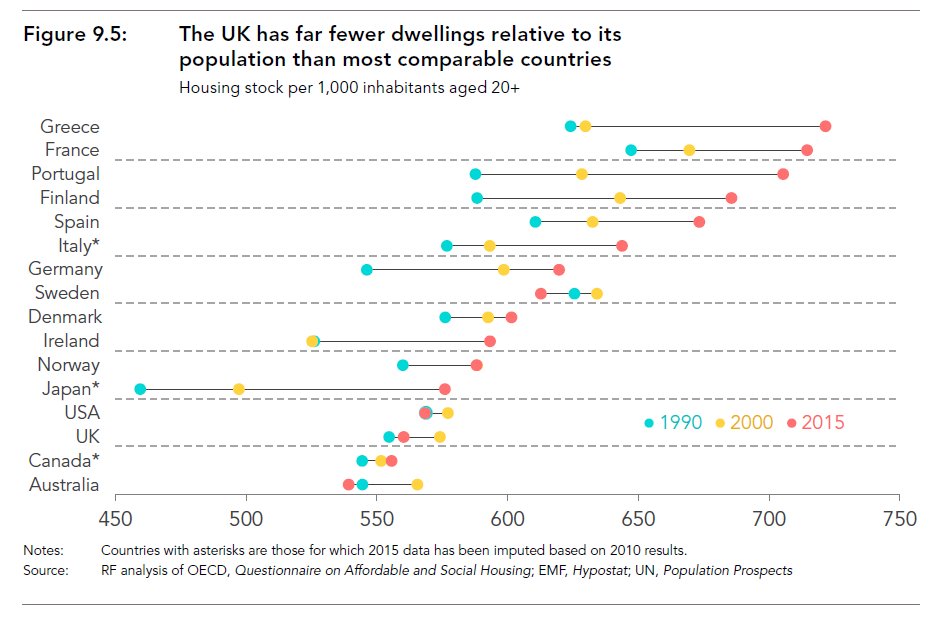
This page on fixing planning is my least favourite so far. "The current strategy for [building more homes] has focused on getting tough with councils" > not really true. Look at Bradford, Birmingham, Leeds and more. National government has forced DOWN planned housing numbers.
A central government unit of highly skilled planners? No thanks. It'll be more people in London zooming out to the provinces to talk down to them. They'll hold back the North while they boost the South. No. No. No. No. No. Want local government to plan better? Give them the cash.
And then this bit on affordable housing just seems far too national in focus. This stuff has to be local, we don't have a national housing market. Yet these policy suggestions are mostly national.
Right -- final stretch. It's far too late for my brain to handle the bit on pensions. I think we do need more £££s for the NHS, but a hypothecated levy is frustrating. Hypothecation is never hypothecation.
And so we arrive at the end. That was the #IntergenerationalCommission report as read by me. There's a lot there, it'll take a while to digest. Interesting contents -- but nothing too inspiring for me. resolutionfoundation.org/publications/a…
It talks about low investment -- but not where and in what investment was low.
It talks about high housing costs -- but not where costs are lower, and why that doesn't fill the gap.
It focuses on the national -- when national government is what has failed us here.
It talks about high housing costs -- but not where costs are lower, and why that doesn't fill the gap.
It focuses on the national -- when national government is what has failed us here.
• • •
Missing some Tweet in this thread? You can try to
force a refresh














